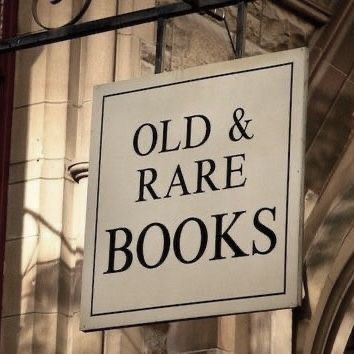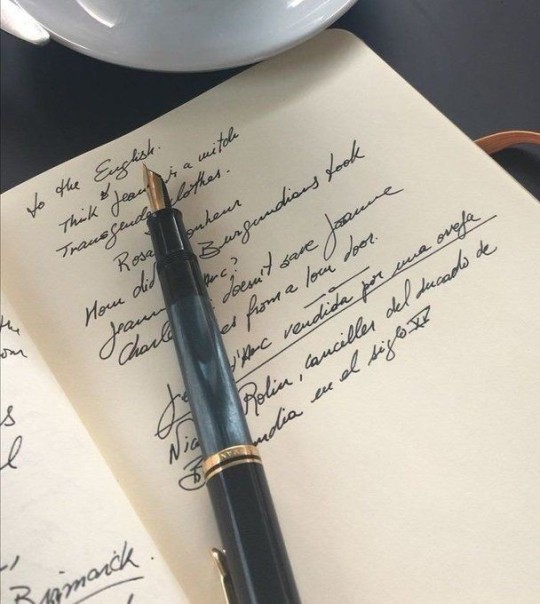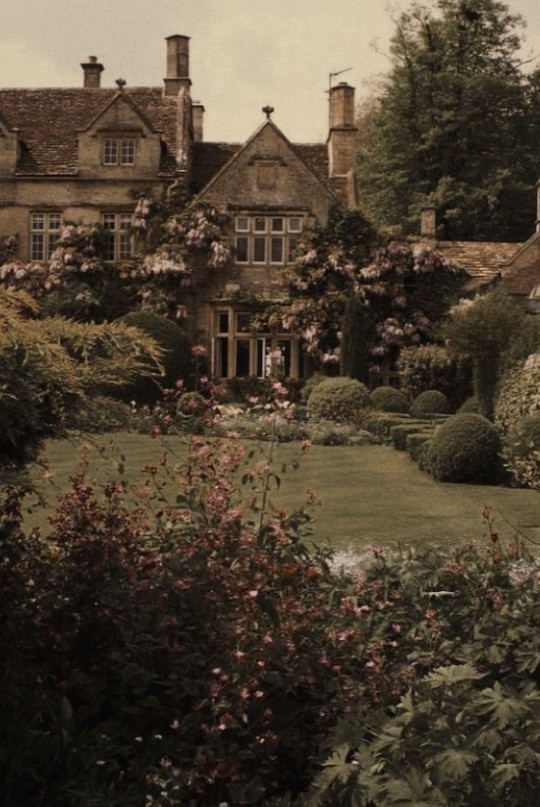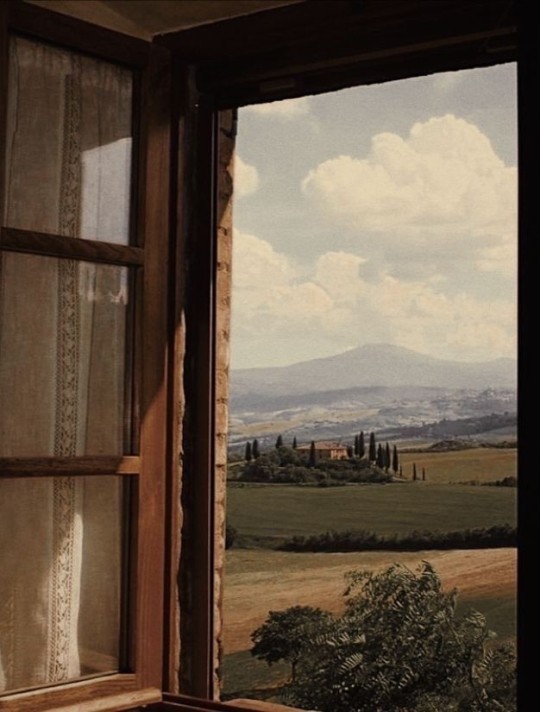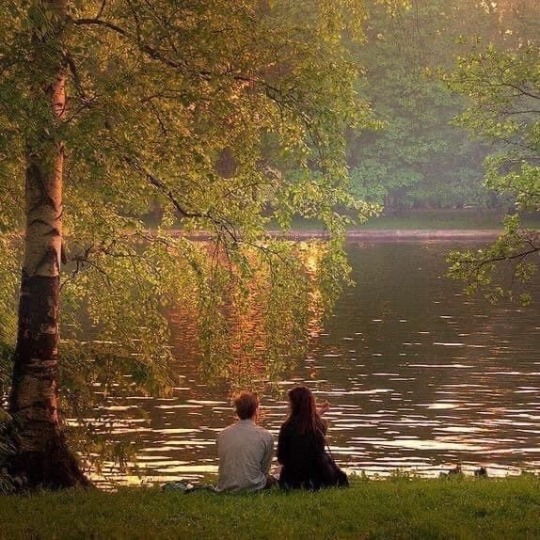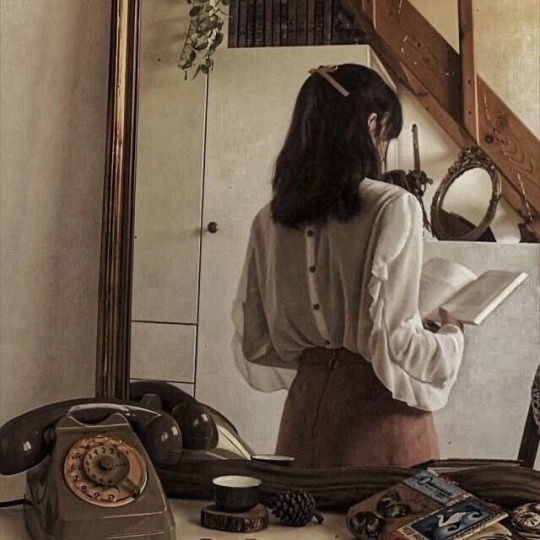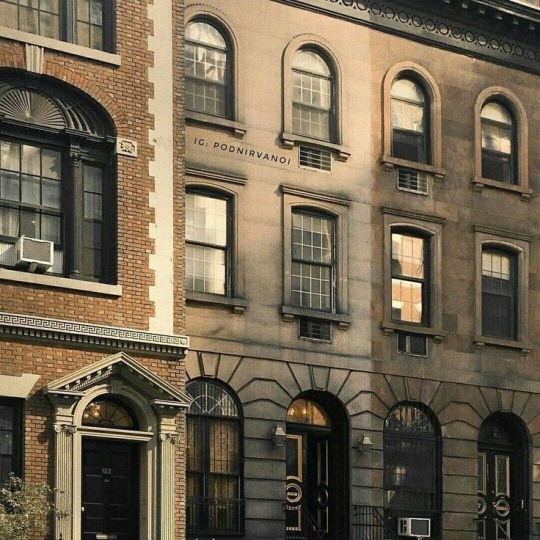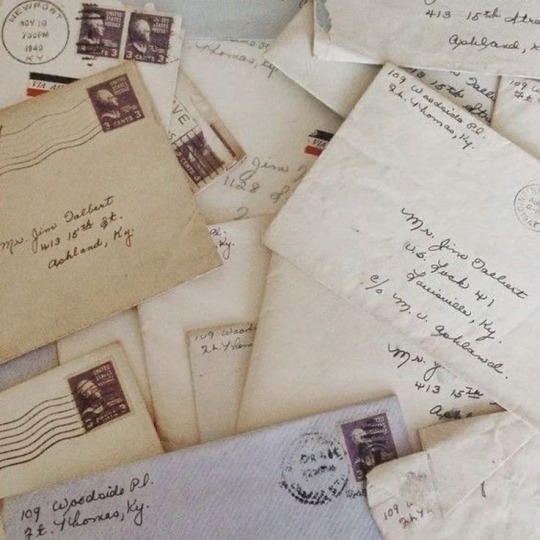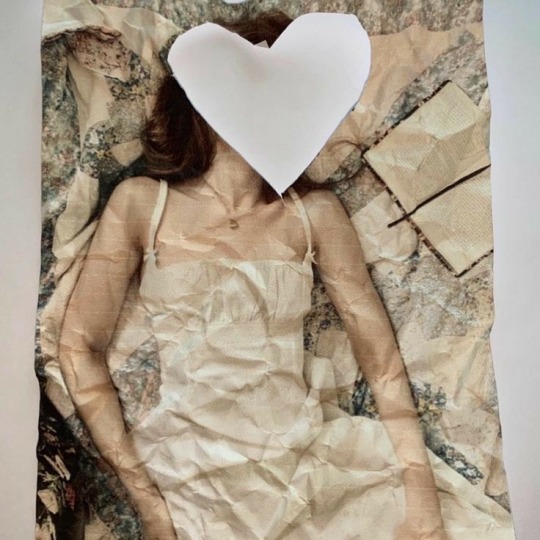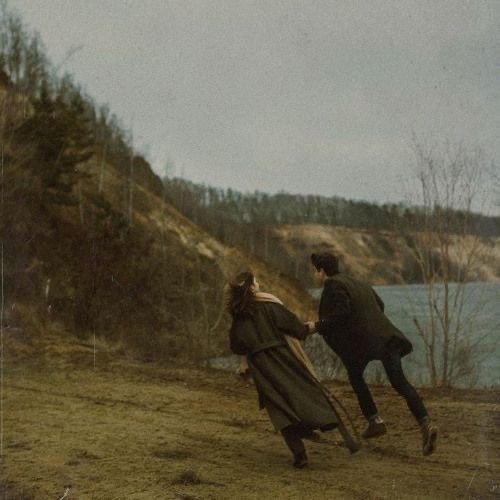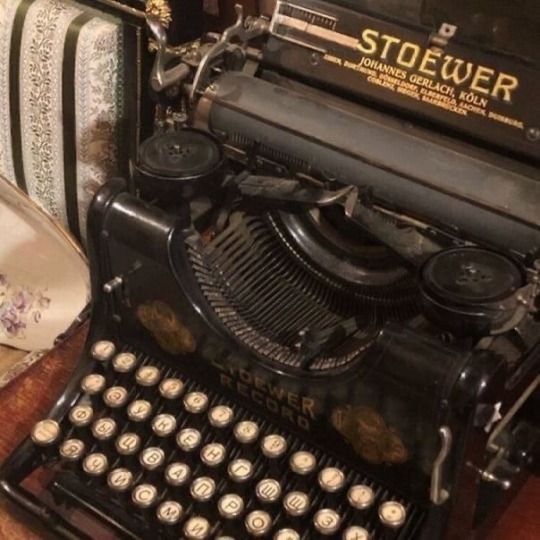Text
1K notes
·
View notes
Text
I saw this on another blog and decided to try my hand at it!
How well does your social media know your aesthetic?
My results are pretty accurate. Go to Pinterest and type the following searches:
Animal, place, plant, character, season, hobby, color, and drink!
The first image you see is your answer!








#light academia#romantic aesthetic#booklover#scotland#owl#forest witch#forest aesthetic#pride and prejudice#p&p#elizabeth bennet#jane austen#dark academia#cottagecore#coffee#latte#music#ukulele#autumm#fall aesthetic#cozy aesthetic#teal
17 notes
·
View notes
Text
Both Pride & Prejudice and Much Ado About Nothing work so well as enemies to lovers because despite surface animosity, it's clear that both end couples really respect each other and for good reasons. I think you could even argue that with Beatrice, she spars with Benedick because she considers him a worthy opponent.
When Hero and Ursuala plot to make Beatrice fall in love, Hero instructs her to speak of Benedick and "praise him more than ever man did merit" and yet when Beatrice finally speaks, she doesn't disagree with their high praise, she says of Benedick:
For others say thou dost deserve, and I
Believe it better than reportingly.
Benedick likewise after his eavesdropping on Don Pedro, Leonato, and Claudio's praise Beatrice says:
They say the lady is fair; 'tis a
truth, I can bear them witness; and virtuous; 'tis
so, I cannot reprove it; and wise, but for loving
me; by my troth, it is no addition to her wit, nor
no great argument of her folly, for I will be
horribly in love with her.
Similarly in Pride & Prejudice, once the misunderstanding about Wickham is cleared away, Elizabeth is able to acknowledge to herself how much she respects and likes Darcy:
She began now to comprehend that he was exactly the man who, in disposition and talents, would most suit her. His understanding and temper, though unlike her own, would have answered all her wishes. It was an union that must have been to the advantage of both: by her ease and liveliness, his mind might have been softened, his manners improved; and from his judgment, information, and knowledge of the world, she must have received benefit of greater importance.
Darcy also finds that he admires Elizabeth, after initially dismissing her:
But no sooner had he made it clear to himself and his friends that she had hardly a good feature in her face, than he began to find it was rendered uncommonly intelligent by the beautiful expression of her dark eyes. To this discovery succeeded some others equally mortifying. Though he had detected with a critical eye more than one failure of perfect symmetry in her form, he was forced to acknowledge her figure to be light and pleasing; and in spite of his asserting that her manners were not those of the fashionable world, he was caught by their easy playfulness.
All of these characters also hear and accept criticism of themselves. Both Benedick and Beatrice hear they are too proud to accept love, which they both overcome. Elizabeth learns that she judged Darcy without sufficient information and Darcy that his behaviour was not that of a gentleman. Their mutual acceptance of this criticism and their growth as people leads to their ultimate happiness.
Unfortunately, those who reproduce this trope often forget to build this foundation of respect and the acknowledgement, either personally or publically, that the characters have been wrong. Instead we get characters who mid argument begin ripping each other's clothes off. No growth, no understanding how they have been wrong, it just becomes "thin line between hatred and love" instead of "we grew towards each other".
852 notes
·
View notes
Text
In defense of Shakespeare's Daughters
When students find out that:
Shakespeare has no living descendants (and that's why we don't have to ask "Which Shakespeare?" like we do with the Bach family),
That he did have a son, once, but that boy died when he was only ten years old, and
That son was named "Hamnet" (not a typo, BTW)
Those students who go on to become Shakespearean scholars can get a bit obsessed when it comes to themes of fathers, sons, and grief (particularly in that one play about a Prince of Denmark).
So I'd like to take this time to point out that Shakespeare was also the father to two daughters: his firstborn, Susanna, and Judith, Hamnet's twin sister.
And to help me make the point that the Father/Daughter relationship was important to him, and not just a consolation prize, here's a few of the plays that hinge on it (an incomplete list):
The Tempest: a father and daughter as the only humans on a tropical island.
Romeo and Juliet: The tragedy unfolds with exponential speed when Juliet's father decides that she must marry Tybolt immediately.
Much ado About Nothing: The comedy almost becomes a tragedy when Leonato rejects his daughter during the wedding ceremony.
The Winter's Tale: In the first half of the play, the jealous king rejects his infant daughter, wrongly thinking she is a bastard. In the second half of the play, we see the daughter as a teenager, and her relationship with her adoptive father, a shepherd; the play is resolved when she returns home, with her adoptive father, to her birth father.
Hamlet: Let's face it -- the whole play gets mired in schemes, secrets, and second guesses until Ophelia's response to her father's death unleashes a flood of action.
Merry Wives of Windsor: the "B Plot" is all about how the young adult daughter of Mr. and Mrs. Page successfully schemes to marry the young man she actually loves, instead of either of the arranged marriages her parents are hoping for.
552 notes
·
View notes
Text
Benedick listing what he considers good qualities in a woman and then saying that there isn't a woman alive who has all of them and therefore he will never fall in love vs Benedick literally five minutes later describing Beatrice by listing all of those exact same qualities like babes you're not even subtle come on
632 notes
·
View notes
Text
I'm going to be a Shakespeare nerd for two seconds but I fucking love in the David Tennant/Catherine Tate Much Ado About Nothing how they mess around with the script leading to some genuinely hilarious moments like
okay
in the script, Benedick has the following line:
It seems
her affections have their full bent. Love me? Why, it
must be requited!
But in the show it's
It seems
her affections have their full bent. Love me? Why?
It must be requited!
Or to be even more specific it's:
Love me?
...

...
...WHY?
...
...
It must be requited!
And I think that's beautiful.
1K notes
·
View notes
Text
obsessed with tragedies that were almost comedies and comedies that were almost tragedies and comedies in which the happy ending is actually tragic
3K notes
·
View notes
Text
You know what's so devastating to me about "God that I were a man"? It's the way that in this situation, Beatrice is not exceptional. In the first acts, she appears to be exempt from the gender roles that everyone around her complies with: she has avoided marriage so far, and she has license to playfully criticize and reject being "over-master'd with a piece of valiant dust" (2.2.55-56). She even suggests to Hero that she claim some agency over her engagement: "it is my cousin's duty to make curtsy, and say, 'father, as it please you.' But yet for all that, cousin, let him be a handsome fellow, or else make another curtsy and say, 'father, as it please me'" (2.1.48-51). Beatrice has carved out an existence for herself that everyone else tolerates; her wit allows her to live outside of people's expectations of womanhood.
But Beatrice is not exempt from being a woman. When it actually matters, when Hero is disgraced by powerful men with no regard for her wellbeing or humanity, Beatrice can't do anything about it. And "God that I were a man" is so painful because it reminds us--and Benedick--that no matter how transcendent Beatrice appears to be, she is still constrained by her role in Messina's society. Back in act one and act two, the reason that she was allowed to poke fun at men wasn't that she couldn't be stopped; it was that it didn't matter. She has no actual power to change the order of things, and so her verbal sparring is not a threat.
(An aside: I think that Benedick is taken aback by "God that I were a man" because this has never really occurred to him. He sees Beatrice as his intellectual equal, and he has watched her carve out space for herself effectively (they know each other of old). In the 2011 production with David Tennant, the costuming and acting choices show how Benedick starts actively performing masculinity only when he accepts Beatrice's request to kill Claudio--when he has to "be a man for [Beatrice's] sake" (4.1.314). In the first acts, he wears tight clothes, a crop top, and a miniskirt. From the wedding on, he wears his military uniform and then a suit. His body language also changes; he abandons physical comedy, stands tall, and emotes less when he speaks to Claudio and Don Pedro. He wields his masculinity as a weapon because he now realizes it's a weapon that Beatrice cannot wield herself.)
The crashing realization of Beatrice's limits is so devastating to me because it's so familiar. I can only speak from experiences I've had, but as a queer woman I know that tolerance is different than empowerment. That having grown up evading dating and romance with made-up excuses to hide my queerness, having realized the extent of the misogyny in an organization I cared about and having grappled with how that misogyny prevented me from effecting change, being allowed to exist is not the same as being able to participate, to make things different. God, that I were a man. I would eat his heart in the marketplace.
809 notes
·
View notes
Text
David Tennant and Catherine Tate as Signior Benedick and Beatrice in a production of Much Ado About Nothing in 2011
[source]
4K notes
·
View notes
Text
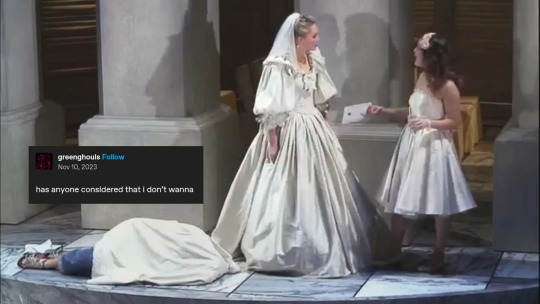
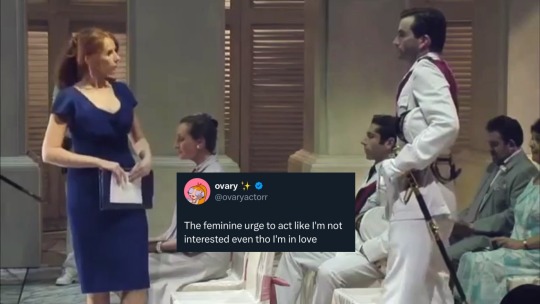
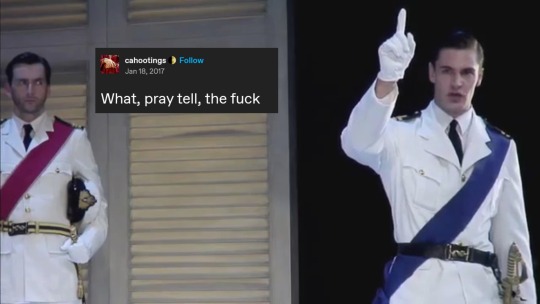
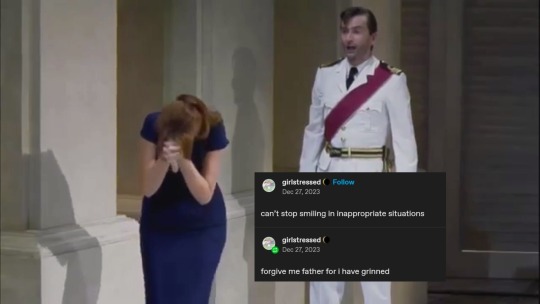
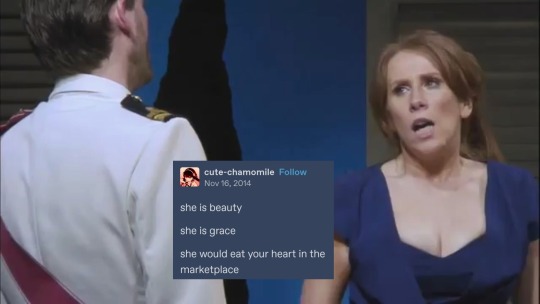

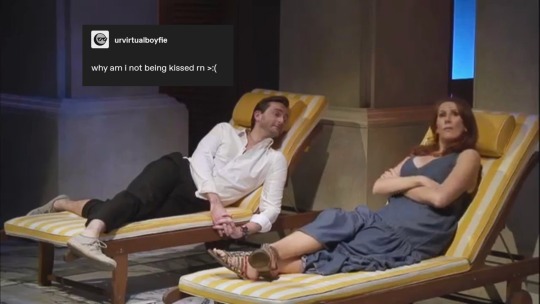
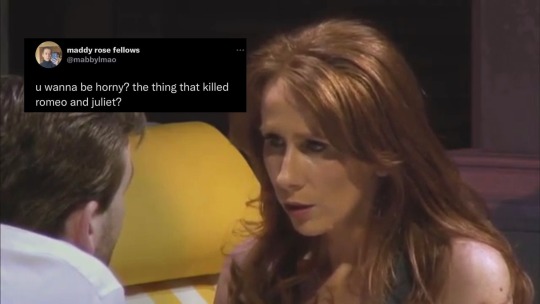

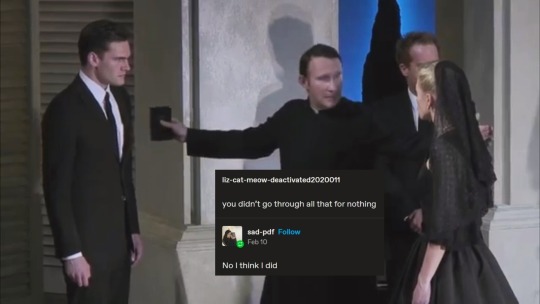
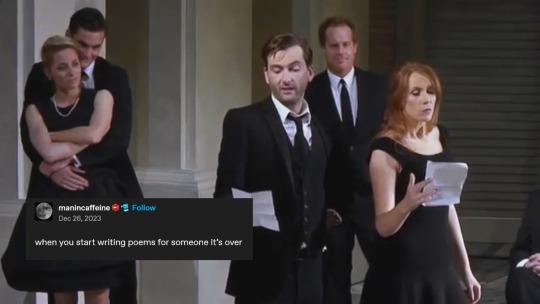



~ ᗰᑌᑕᕼ ᗩᗪO ᗩᗷOᑌT ᑎOTᕼIᑎG (2011) + TE᙭TᑭOSTS [ᑭT. 1] [ᑭT. 2]
887 notes
·
View notes
Video
per anon’s request, i present to you THE best version of beatrice’s monologue in much ado about nothing. i thought about cropping this but decided this scene must be watched in its full glory
16K notes
·
View notes
Text
Much Ado About Nothing, Wyndhams (2011)
Act 2 Scene 3 aka the paint bit
4K notes
·
View notes
Video
i am once again asking you to watch the 2019 shakespeare in the park production of much ado about nothing
85K notes
·
View notes
Text
Here's THE masterpost of free and full adaptations, by which I mean that it's a post made by the master.
Anthony and Cleopatra: here's the BBC version, here's a 2017 version.
As you like it: you'll find here an outdoor stage adaptation and here the BBC version. Here's Kenneth Brannagh's 2006 one.
Coriolanus: Here's a college play, here's the 1984 telefilm, here's the 2014 one with tom hiddleston. Here's the Ralph Fiennes 2011 one.
Cymbelline: Here's the 2014 one.
Hamlet: the 1948 Laurence Olivier one is here. The 1964 russian version is here and the 1964 american version is here. The 1964 Broadway production is here, the 1969 Williamson-Parfitt-Hopkins one is there, and the 1980 version is here. Here are part 1 and 2 of the 1990 BBC adaptation, the Kenneth Branagh 1996 Hamlet is here, the 2000 Ethan Hawke one is here. 2009 Tennant's here. And have the 2018 Almeida version here. On a sidenote, here's A Midwinter's Tale, about a man trying to make Hamlet. Andrew Scott's Hamlet is here.
Henry IV: part 1 and part 2 of the BBC 1989 version. And here's part 1 of a corwall school version.
Henry V: Laurence Olivier (who would have guessed) 1944 version. The 1989 Branagh version here. The BBC version is here.
Julius Caesar: here's the 1979 BBC adaptation, here the 1970 John Gielgud one. A theater Live from the late 2010's here.
King Lear: Laurence Olivier once again plays in here. And Gregory Kozintsev, who was I think in charge of the russian hamlet, has a king lear here. The 1975 BBC version is here. The Royal Shakespeare Compagny's 2008 version is here. The 1974 version with James Earl Jones is here. The 1953 Orson Wells one is here.
Macbeth: Here's the 1948 one, there the 1955 Joe McBeth. Here's the 1961 one with Sean Connery, and the 1966 BBC version is here. The 1969 radio one with Ian McKellen and Judi Dench is here, here's the 1971 by Roman Polanski, with spanish subtitles. The 1988 BBC one with portugese subtitles, and here the 2001 one). Here's Scotland, PA, the 2001 modern retelling. Rave Macbeth for anyone interested is here. And 2017 brings you this.
Measure for Measure: BBC version here. Hugo Weaving here.
The Merchant of Venice: here's a stage version, here's the 1980 movie, here the 1973 Lawrence Olivier movie, here's the 2004 movie with Al Pacino. The 2001 movie is here.
The Merry Wives of Windsor: the Royal Shakespeare Compagny gives you this movie.
A Midsummer Night's Dream: have this sponsored by the City of Columbia, and here the BBC version. Have the 1986 Duncan-Jennings version here. 2019 Live Theater version? Have it here!
Much Ado About Nothing: Here is the kenneth branagh version and here the Tennant and Tate 2011 version. Here's the 1984 version.
Othello: A Massachussets Performance here, the 2001 movie her is the Orson Wells movie with portuguese subtitles theree, and a fifteen minutes long lego adaptation here. THen if you want more good ole reliable you've got the BBC version here and there.
Richard II: here is the BBC version. If you want a more meta approach, here's the commentary for the Tennant version. 1997 one here.
Richard III: here's the 1955 one with Laurence Olivier. The 1995 one with Ian McKellen is no longer available at the previous link but I found it HERE.
Romeo and Juliet: here's the 1988 BBC version. Here's a stage production. 1954 brings you this. The french musical with english subtitles is here!
The Taming of the Shrew: the 1980 BBC version here and the 1988 one is here, sorry for the prior confusion. The 1929 version here, some Ontario stuff here, and here is the 1967 one with Richard Burton and Elizabeth Taylor. This one is the Shakespeare Retold modern retelling.
The Tempest: the 1979 one is here, the 2010 is here. Here is the 1988 one. Theater Live did a show of it in the late 2010's too.
Timon of Athens: here is the 1981 movie with Jonathan Pryce,
Troilus and Cressida can be found here
Titus Andronicus: the 1999 movie with Anthony Hopkins here
Twelfth night: here for the BBC, here for the 1970 version with Alec Guinness, Joan Plowright and Ralph Richardson.
Two Gentlemen of Verona: have the 2018 one here. The BBC version is here.
The Winter's Tale: the BBC version is here
Please do contribute if you find more. This is far from exhaustive.
(also look up the original post from time to time for more plays)
55K notes
·
View notes




